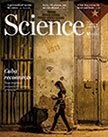Gay Canvassers Study May Rely on Bogus Data, but Social Contact Matters for Same-Sex Marriage Debate
I'm sure that Michael LaCour hoped to make the front page of The New York Times many times over during his career as a Princeton political scientist -- preferably being featured in articles that talked about groundbreaking research (and real results), not his fabrication of a study with Columbia University political scientist Donald Green on the impact of political canvassing on public opinion toward same-sex marriage.
The story of the "great gay marriage hoax" is a compelling one for academic researchers, policy activists, and the general public alike. The revelation by Green that the data may have been fabricated, has many reputable news organizations issuing retractions and apologies including Ira Glass over at This American Life. And plenty of academics were jamming up Retraction Watch, making it hard to access Ivan Oransky's breaking post as well as Brockman, Kalla, and Arronow's Irregularities in LaCour (2014) that noted the study's problematic response rate as well as the distribution and sourcing issues for the opinion toward same-sex marriage variable.
While LaCour's study appears to be a little more than half-baked, the premise -- that social contact with a member of the LGBT public -- can shape attitudes toward same-sex marriage and LGBT individuals more broadly, is not without merit.
In my own work (which features real, secondary data collected by reputable polling organizations like the Pew Research Center, CIRCLE (the Center for Information & Research on Civic Learning and Engagement) and others, I've shown that personal contact greatly influences younger individual's acceptance of homosexuality (those between 18-25), and that social contact also matters for those 26 years of age and older (even after controlling for things like demographics and religious and political value predispositions).
While not Science, I published this piece in 2011 in Social Science Quarterly with my Ph.D. advisor, Dietram Scheufele, who is the John E. Ross Professor in Science Communication at the University of Wisconsin, Madison, who like Donald Green is an important scholar within the field of political communication. Like Green, Scheufele has mentored numerous graduate students over the years in both the School of Journalism and Mass Communication and the Department of Life Sciences Communication at UW-Madison, encouraging us to take the lead on important research projects and data analysis. He was always available for consultation on projects and helped with the review of the data, but let graduate students like me take the lead. Underneath all collaborations was a foundation of mutual trust and respect and the understanding that the practice of engaging in and publishing research comes with great responsibility.
Lately, I've been working on more solo-authored research, thanks in part to the great mentoring and training I received from Scheufele. A piece I published in 2012 in the International Journal of Public Opinion Research (IJPOR) entitled, Determinants of Public Support for Same-Sex Marriage: Generational Cohorts, Social Contact, and Shifting Attitudes shows that social contact matters when we're talking about support for same-sex marriage and that not surprisingly, the younger you are (think Millennials) the higher the rate of social contact with LGBT individuals within your social network. Even after controlling for demographics and political and religious value predispositions, having a connection with a member of the LGBT community greater increases the likelihood of supporting same-sex marriage.
Moreover, as both pieces of research have suggested, it's not just mere contact that matters, but the degree of social contact that plays an important role. In the 2012 study, social contact was measured by having a close family member or friend who is gay, not just an acquaintance or co-worker.
I continue to publish on the same-sex marriage issue and LGBT civil rights more broadly and have looked at the influence of marital and family status, attitudes and media use, and other important variables on support for the issue. I've also worked with my colleague, Maureen Todd, to look at implications for policy and practice for those engaging in counseling and family therapy with LGBT teens.
Lastly, in 2014, I considered the shifting dynamics of employment discrimination toward LGBT individuals between 1985-2012 in a special edition of IJPOR on Gay Rights & Marriage edited by Paul Brewer of the University of Delaware.
My research relies on real data and rigorous analysis and research. It's a shame that the LaCour piece has unraveled in such a spectacular fashion, raising serious questions about the peer review and publication process . But as Green has said in an interview with New York Magazine, the study LaCour pretended to conduct, is one that political communication researchers should actually do as social contact does matter in the case of public opinion toward same-sex marriage. At least my own real research tells me so ...


Comments
Post a Comment